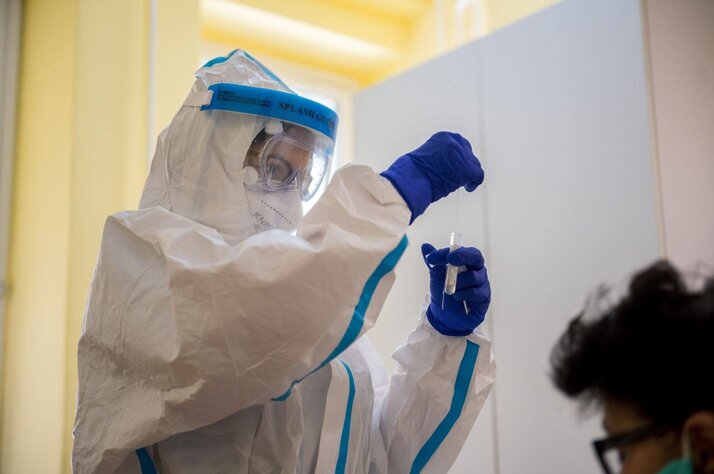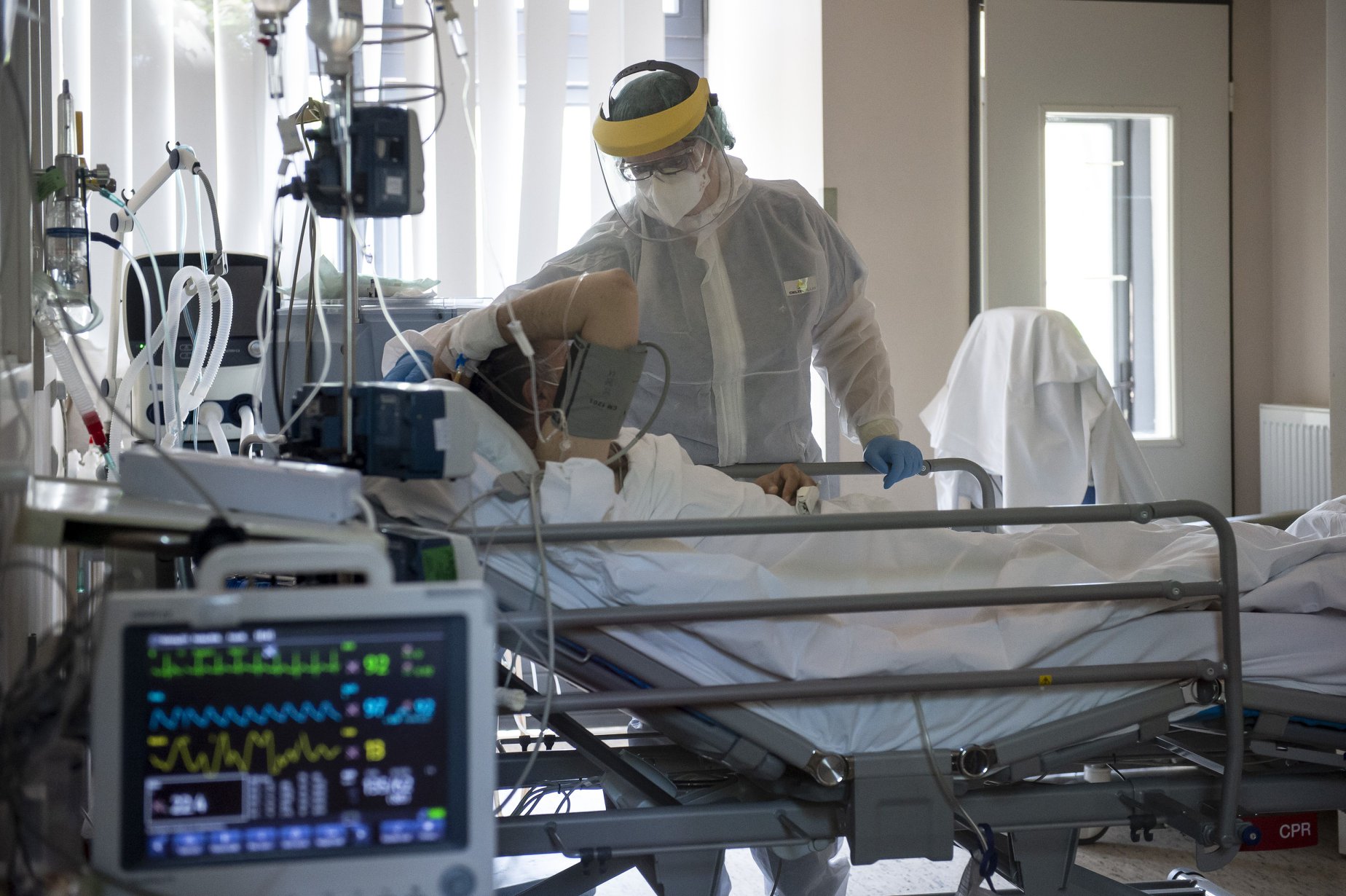In Hungary, these three drugs are given to COVID-19 patients – But which one is the most effective?
Besides finding the appropriate vaccine as soon as possible, the effective treatment of the infected patients is also of primary importance. In Hungary, Covid-19 patients currently receive three drugs, two of which – favipiravir and remdesivir – to be of little help to severely ill patients treated in the hospital, while the third remedy, dexamethasone, cannot be given to everyone.
Hungary has already ordered about 5 million units of the Japanese-developed favipiravir – originally used to treat influenza – to be used in the treatment of coronavirus patients. Furthermore, the production of remdesivir has begun in Hungary. Even though the medicine previously failed against Ebola, it might be effective against Covid-19.
As the Hungarian news portal Napi reports, both are part of domestic hospital use in the treatment of Covid-19 patients; however, it is less likely that the two remedies would result in miracles.
It has already been suggested in the early days of the coronavirus pandemic that remdesivir may work against the Sars-CoV-2 virus because it is a prodrug that greatly simplifies the reproduction of the virus and reduces the production of the virus’s hereditary material. In May, initial research showed that it could speed up the recovery of severe cases by 31-55% and help many patients to avoid artificial respiration.
However, since then, several studies have found that remdesivir is not very effective in patients with mild to moderate symptoms.
Researchers at the Singapore Epidemiology Centre found that 11% of remdesivir-treated patients died by day 28. Furthermore, a similar study by the US National Institute of Allergy and Epidemiology also found similar results: in a randomised, placebo-controlled study, 29-day mortality was 11.4% among remdesivir-treated coronavirus patients and 15.2% in the case of patients not receiving the remedy.
According to the authors, the characteristic immunopathology of Covid-19 may explain these disappointing results: the intense viral replication (proliferation) phase occurs in severe infections within 8-9 days after the onset of symptoms, according to previous data. If a patient is already on supplemental oxygen at this stage (must wear an oxygen mask but is not intubated) and starts receiving remdesivir before day 10, their chances of survival are improved. However, in patients with mild to moderate Covid-19 infection who do not require respiratory support, remdesivir does not provide significant relief.
In its most recent recommendation, the World Health Organization (WHO) does not recommend the use of the drug at all due to its narrow spectrum of use. “The potential benefit, if any, of remdesivir is far less than the harm it can cause to the body,” the WHO recommended.
In Hungary, the other medication widely used for the treatment of Covid-19 is favipiravir, originally tested by the Japanese Toyama Chemical (a member of the Fujifilm Group), marketed under the name Avigan.
It has been shown to be effective for its strong antiviral effects as well as other upper respiratory viral infections, so it was soon tried in China and Japan to treat Covid-19. As its mechanism of action and side effects were known as a registered medicine and it showed promising results relatively early, several countries started to use it. In the third phase of testing favipiravir, 156 Japanese patients appeared to improve after 11.9 days. Furthermore, in Russia and India, favipiravir has also been approved effective in small groups of people, as a result of which its pharmacy distribution was allowed. Despite these results, critics say the small sample does not yet provide evidence.
Thus, the efficacy of favipiravir is still questionable for the time being, and one – but rather more – large-scale research could provide a clear answer. In the meantime, however, patients in many countries may still take it, even though its side effects in the case of Covid-19 patients have not yet been mapped.
Currently, the inexpensive, widespread dexamethasone is perhaps the only product for which there is scientific consensus on its efficacy and its place in the treatment of coronavirus patients.
In a UK study, a total of 2,104 patients received the steroid-containing formulation, and 4,321 patients were treated as usual without the drug. In total, 482 people (22.9%) of dexamethasone-treated patients and 1,110 patients (25.7%) in the standard care group died within 28 days. Mortality rates between groups varied significantly depending on the respiratory support patients received at the time of randomisation. The incidence of mortality was lower in the dexamethasone group than in the standard care group in patients receiving invasive mechanical ventilation and in those receiving oxygen without tube ventilation.
However, the drug really only helps if a patient is already in a critical condition, or at least suffers from severe symptoms. This is because the improvement was not significant in those who received dexamethasone without the need for mechanical ventilation or respiratory assistance.
Dexamethasone is, therefore, part of the Hungarian and European care regimen and recommended treatment lists.

Read alsoCoronavirus – Chief epidemiologist calls for swift mass vaccination
Source: napi.hu
please make a donation here
Hot news
PM Orbán’s biggest opponent revealed why food prices are high in Hungary
Wizz Air flight’s emergency landing in Budapest; Hungarian guest workers’ horrific accident
PHOTOS, VIDEO: Budapest’s beloved party tram takes over the nightlife!
PHOTOS: Hungary’s most expensive hamburger, the Hundredbuck$Burger of Szeged
Meteorologists predict snow across multiple Hungarian regions next week
Steven Bartlett at SIBF 2024: From business success to fatherhood dreams





1 Comment
Educational – the “magic pill” or vaccine – it’s Discovery – will be in the immediate future.
The “blessing” of the European Union, at the forefront of their decision Germany, what the EU “sign off” as the magic pill or vaccine, will comfort me.
Shakespeare in his poem – The Rape of Lucrece wrote :
“that one for all, or all for one ”
That’s the UNITED way – the Humanitarian centered and focused way forward, that I consider the approach by country’s should be.